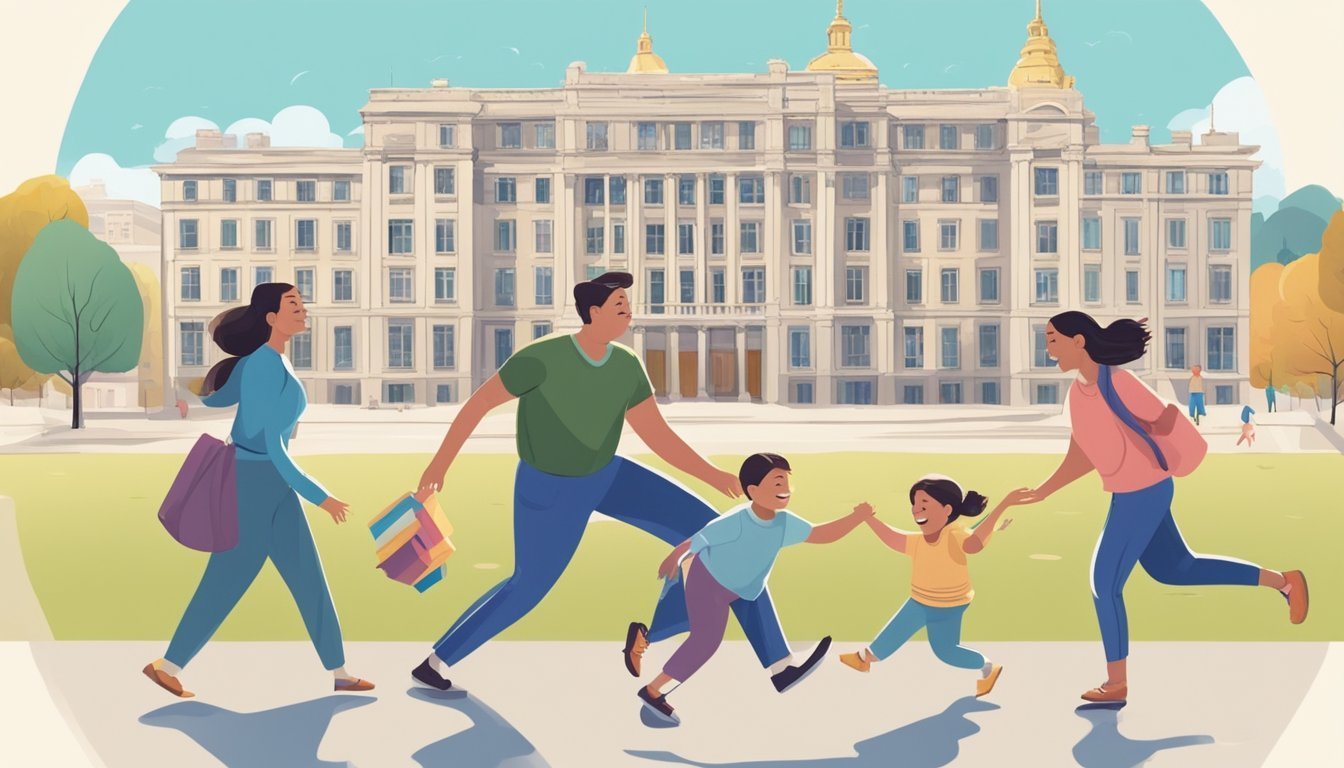Introduction to Parental Rights
The debate surrounding parental rights has emerged as a significant flashpoint in today’s cultural landscape.
This contentious issue plays out in various arenas—from school board meetings and court rooms to legislative discussions—and reflects a deepening divide over educational content, medical decision-making, and the influence on children’s identities.
At its core, the issue of parental rights transcends a simple clash between parents and the government.
It taps into profound societal anxieties surrounding identity, independence, and control.
As conversations unfold around educational policies and medical choices, parental rights serve as a fascinating lens to explore broader cultural and political tensions.
Why, then, are parental rights capturing such intense attention in today’s discourse? What can these discussions reveal about the shifting dynamics of power within families, governmental entities, and society as a whole? Moreover, how have parental rights become emblematic of larger disputes over authority, freedom, and evolving societal norms?
Historical Context and Cultural Implications
To fully grasp the complexities of the parental rights debate, it is essential to delve into its historical context, political implications, and human stakes.
This seemingly personal issue reflects greater societal discord on individual liberties, state intervention, and changing values.
The humanities offer essential insights into how parental rights have transformed amid the ongoing culture wars.
These fields provide a framework for navigating this challenge.
For example, the historical evolution of parental rights reflects shifts in family structures, authority, and state involvement.
In earlier centuries, parents held almost undisputed authority over their children.
However, as the welfare state and educational reforms emerged in the 19th and 20th centuries, the government’s involvement in child welfare began to grow.
Understanding this evolution sheds light on today’s struggles between family autonomy and state oversight.
Philosophical perspectives can also illuminate the existing tensions between parental authority, children’s autonomy, and state responsibilities.
The exploration of when parental rights may need to be weighed against children’s welfare or state obligations enriches these discussions.
Cultural studies contribute to this discourse by analyzing how parental rights intersect with identity and societal expectations.
Current debates over school curricula addressing issues of race and gender reflect broader cultural concerns and anxieties.
Literary Reflections on Parental Rights
Several contemporary literary works dive deeply into the complexities surrounding parental rights, child independence, and government interventions, offering compelling narratives on these intricate issues.
For instance, Ashley Audrain’s novel The Push delves into a mother-daughter relationship filled with tension, prompting challenging questions about parental responsibility, nature versus nurture, and the state’s role in protecting children from harm.
Similarly, Robin Benway’s Far From the Tree navigates themes of adoption and biological ties within the foster care system, exploring the competing rights of birth and adoptive parents, alongside the state’s obligation to prioritize a child’s welfare.
Kazuo Ishiguro’s Never Let Me Go raises poignant questions about individual rights, particularly those of children, in a society that dictates their lives for utilitarian purposes.
In Everything I Never Told You, Celeste Ng reflects on parental expectations and the heavy burdens placed on children through the lenses of race, gender, and societal norms.
Her other work, Little Fires Everywhere, further highlights the tension between biological and adoptive parental rights amidst a custody battle marked by issues of race and privilege.
Ann Patchett’s The Dutch House presents an inheritance dispute that embodies the clash between parental authority and children’s autonomy regarding family estates.
Lastly, Jodi Picoult’s My Sister’s Keeper confronts the challenges of parental authority and medical ethics, as a daughter grapples with her imposed role as a donor for her sick sister, striving for her own independence.
These narratives enrich the ongoing dialogue about parental control, child autonomy, and governmental roles in determining what is best for children, reflecting contemporary legal and social dilemmas.
Historically, parental rights have been grounded in the belief that parents should oversee their children’s education and upbringing.
Today, however, this concept serves as a focal point in broader discussions about personal autonomy, social standards, children’s rights, and government power.
Conservatives often champion parental rights to preserve traditional values, contending that parents should have ultimate authority over vital decisions affecting their children.
Conversely, liberals may advocate for parental rights when they clash with state regulations, reflecting deeper concerns over individual freedoms and governmental reach.
The current discourse on parental rights emphasizes an ongoing struggle between family autonomy and state intervention.
As societal norms continue to shift regarding identity, health care, and education, this debate underscores the complex relationship between children’s needs, parental authority, and governmental responsibilities.
The outcomes of this conversation will profoundly shape the future of education, health care, and social policy.
The disputes surrounding parental rights act as a microcosm of more extensive societal challenges, making them a critical issue in discussions about governance and cultural norms.
As state involvement increasingly intrudes into areas traditionally seen as family domains—such as education and medical choices—parental rights have become symbolic of broader discussions about authority and individual liberty.
Navigating parental rights in a diverse and politically fragmented society necessitates a careful balancing act.
Respecting family autonomy while ensuring children’s welfare and upholding societal standards is no small feat.
By employing principles of pluralism, justice, and mutual understanding, society can traverse these complicated tensions and develop a framework that honors family independence while prioritizing the well-being of children in an increasingly diverse environment.
Ultimately, the discourse on parental rights extends far beyond the authority of parents; it embodies a larger struggle over the direction of social norms, family autonomy, and the balance of power between families and the state.
How this debate unfolds will greatly influence the future of parental authority, education, and child welfare.
Addressing these nuanced conflicts in our pluralistic society requires a sensitive approach that respects family rights while acknowledging children’s autonomy and the state’s role in fostering justice and public welfare.
Source: Insidehighered


